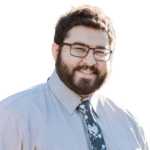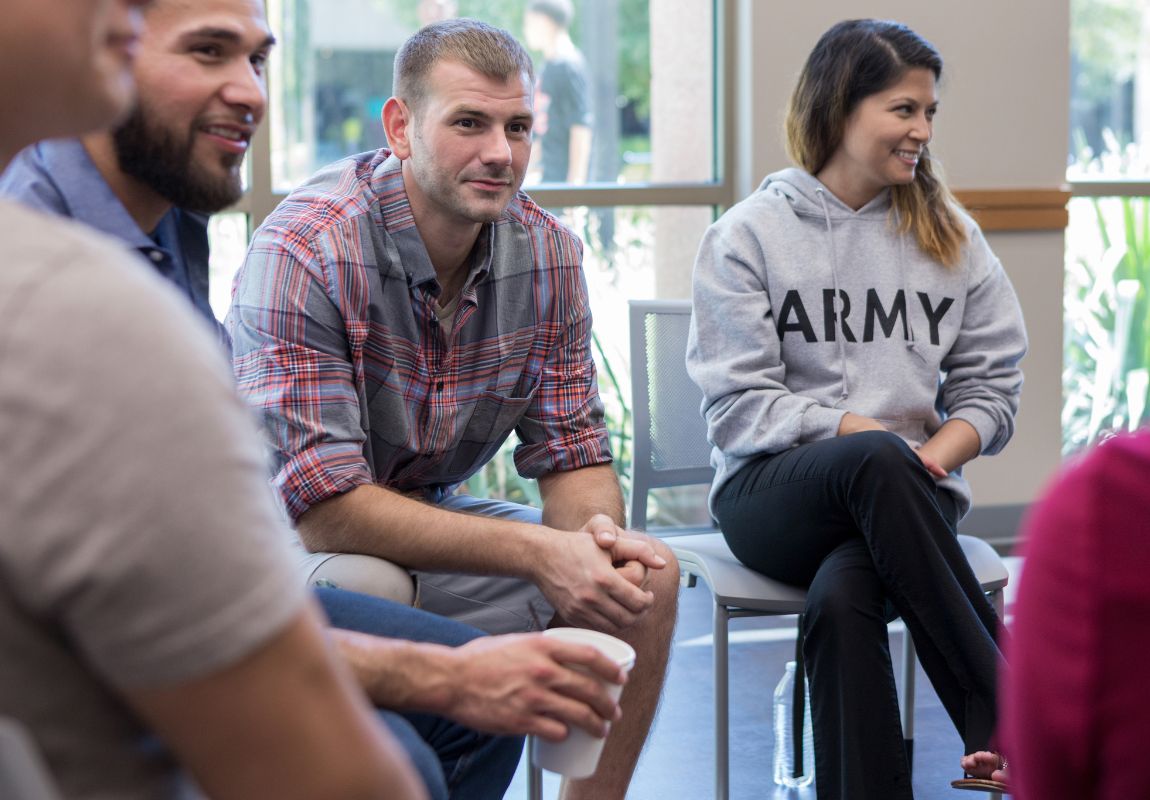Aliya Health Group offers several levels of care including a partial hospitalization program (PHP). Our PHP programs teach clients the skills they need to rebuild a life rooted in passion, purpose, and health in recovery.
During our treatment programs, clients have access to medical care, community support, and addiction treatment resources. All of our rehabilitation services aim to help you maintain sobriety in our partial hospitalization programs and beyond.
Partial Hospitalization for Drug and Alcohol Addiction Addiction Treatment
Partial hospitalization programs (PHP) provide a level of care between inpatient treatment and intensive outpatient programs (IOP). A partial hospitalization program (PHP) provides a smooth transition into less intense outpatient treatment following detox and residential programs. Compared to inpatient, PHP is a more flexible treatment option that’s available to clients who no longer need 24/7 medical supervision.
PHP is developed specifically as a continuum of care for people who have built a strong support system and moderate self-sufficiency. While participating in PHP during the day, typically 5 days per week, many programs provide sober living housing options. In doing so, PHP offers you the opportunity to live at home or move into a sober community.
What Happens During PHP?
PHP programs typically include group therapy, individual therapy, family therapy, and other types of counseling and addiction education. PHP programs are best suited for people who are highly motivated to recover from addiction.
A typical day in PHP includes:
- One-on-one counseling sessions
- Group therapy sessions
- Psychoeducation courses
- Skill-building group exercises
- 12-step and alternative support meetings
- Medication management
- Regular check-ins with your personal care team
During PHP, your day will consist of therapy, education, skill-building, and regular check-ins with your personal care team.
In general, evening and weekend hours are free time to work or spend time with family and friends. Partial hospitalization is often very beneficial for people who need structure and support during the early stages of recovery. The program also provides greater freedom by allowing you to live at home or in sober living.
If you choose to return home, it’s important to have people to help maintain accountability in early recovery. Alternatively, if you transition into a sober living environment during PHP you will continue treatment surrounded by a built-in sober support system.
Clinical Care in Partial Hospitalization Programs
While program schedules and treatment services vary from one treatment facility to the next, most centers use a variety of therapeutic techniques. In fact, quality addiction treatment centers include traditional, evidence-based therapies such as cognitive behavioral therapy (CBT) alongside holistic treatment methods like equine-assisted therapy and trauma-sensitive yoga.
In addition to therapy, you will participate in regular meetings with your psychiatrist for medication management. Medication management ensures that you receive the appropriate prescription for co-occurring disorders or are enrolled in a medication-assisted treatment (MAT) program. During these appointments, your doctor reviews medications to ensure that your symptoms are effectively managed. Any treatment questions regarding your mental health conditions, chronic pain, or general health concerns can be answered in these sessions.
PHP clinical services that focus on healing the mind, body, and spirit are incredibly beneficial to your recovery because they address all aspects of addiction. These types of programs go beyond talk therapy and focus on whole-person healing. This helps reinvigorate your passion for life in recovery.
Individual and Group Therapy
During PHP, counselors guide group therapy sessions in skill-building exercises. Often, the discussions teach you how to manage your emotions better. Other times, you will participate in team-building activities to cultivate healthy communication and trust. Partial hospitalization programs also offer additional types of therapy that build off the skills learned in residential treatment.
Types of therapy in PHP include:
- Individual therapy
- Group therapy
- Family therapy
- Cognitive behavioral therapy (CBT)
- Dialectical behavior therapy (DBT)
- Rational emotive behavior therapy (REBT)
- Acceptance and commitment therapy (ACT)
- Eye movement desensitization reprocessing (EMDR)
- Trauma-sensitive yoga
- Wilderness therapy
- Equine therapy
- Sound therapy
- Writing therapy
- Dance/movement therapy (DMT)
- Art therapy
- Music therapy
Within group sessions, you discuss healthy alternative behaviors to replace maladaptive coping skills. Alongside addiction-related topics, groups also cover similar problems that result from low self-esteem and poor self-image. During these therapy sessions, you will work with other group members to dismantle unhealthy thought patterns, build healthy coping skills, and develop a relapse prevention plan.
Counseling topics in group therapy:
- Relapse prevention plan topics
- Life skills and goal-setting topics
- Addiction psychoeducation lectures
- Trauma and mental health topics
- Social skills activities
- Gender-specific topics
- Veteran-specific topics
- LGBTQIA+-specific topics
- Coping skill-building topics
Along with group therapy, you and your individual therapist discuss your personal needs and goals in recovery. As you grow in treatment, one-on-one sessions help you to appreciate your progress and problem-solve any specific roadblocks you may face during the early stages of recovery.
Case Management During a Partial Hospitalization Program
In some partial hospitalization programs, you will also meet with a case manager to resolve any legal, housing, or personal issues that you may have. Your rehabilitation case manager also works with your doctor, primary therapist, and care team to plan, monitor, and evaluate your progress during treatment.
As an advocate for your success in treatment, your case manager will assist in any issues you may have during rehab. To set you up for success outside of PHP, case managers are available to help guests in solving their problems in and outside of treatment. During partial hospitalization, your case manager makes sure you are prepared with the necessary skills, education, and employment so that you can become self-sufficient once you complete treatment.
Employment Assistance in PHP
Some treatment programs include employment specialists to help you build and create resumes in preparation for searching and applying for a job. All of these resources are intended to support a new and healthy sober life.
Employment specialists also assist you during your search for employment through community connections. As you practice job readiness skills during mock interviews, you will become confident and prepared as you re-enter the workforce and life in recovery.
Frequently Asked Questions
Q: How long are PHP programs?
A: A partial hospitalization program can run at varying lengths depending on the provider. That being said, the average length of treatment in PHP is three to four weeks.
Q: How long do you have to be sober before enrolling in PHP?
A: During PHP and outpatient, a common requirement for admission is a urinalysis free from illicit substances and a breathalyzer that returns a 0.00% BAC.
Depending on the rehab, you may have to complete an inpatient program prior to entering the outpatient portion of treatment. We recommend clients attend treatment in a residential inpatient program prior to attending one of our outpatient programs.
While outpatient levels of care provide amazing programming and support, we believe that the best chance of life-long success is through a foundation of knowledge and insight into your clinical needs and goals. The best way to truly understand what you need in recovery is through intensive therapies in inpatient.
If you choose to enter treatment at an inpatient level of care, you will likely spend 2-4 weeks in intensive individual and group therapies as you integrate healthy coping skills. Following inpatient, you can join an aftercare program with PHP, IOP, and OP services.
Q: What type of clinicians are on staff during PHP?
A: During PHP and all levels of care, Aliya employs:
- Physicians
- Nurses
- Psychiatrists
- Psychologists
- Licensed mental health counselors (LMHC)
- Substance use disorder professionals (SUDP)
- Social workers
We maintain a robust team of medical professionals to benefit the treatment process for each client. We also uphold a high level of support staff like counselor’s assistants and behavioral health techs (BHT) to ensure our team members and clients receive the support they need.
Q: Do you recommend any inpatient treatment centers prior to entering PHP?
A: As a provider, we are incredibly selective in referring you to other programs because we can only ensure the highest quality of treatment within our programs and other centers that we maintain close relationships with.
Aliya Health Group provides inpatient treatment services within the following states:
- Centennial, Colorado
- Elgin, Illinois
- Los Vegas, Nevada
- Hamilton Township, New Jersey
- Newport Beach, California
- Tarzana, California
- Phoenix, Arizona
- Prescott, Arizona
- Washington State
Q: Do you recommend any treatment centers that offer PHP?
A: To ensure that your time in treatment is a positive, beneficial experience, we will only recommend facilities with program details and service offerings that have been personally reviewed and discussed by our team.
Aliya Health Group provides PHP treatment services within the following states:
- Centennial, Colorado
- Elgin, Illinois
- Hamilton Township, New Jersey
- Los Vegas, Nevada
- Newport Beach, California
- Phoenix, Arizona
- Prescott, Arizona
- Washington State
Reach Out to Join a Partial Hospitalization Program
If you or a loved one is struggling with addiction, please call us today at 888-965-3085 to find the right level of care for your unique situation. Partial hospitalization may be the perfect step in your journey to recovery.
References
Substance Abuse and Mental Health Services Administration. (2006). Intensive Outpatient Treatment and the Continuum of Care.



















